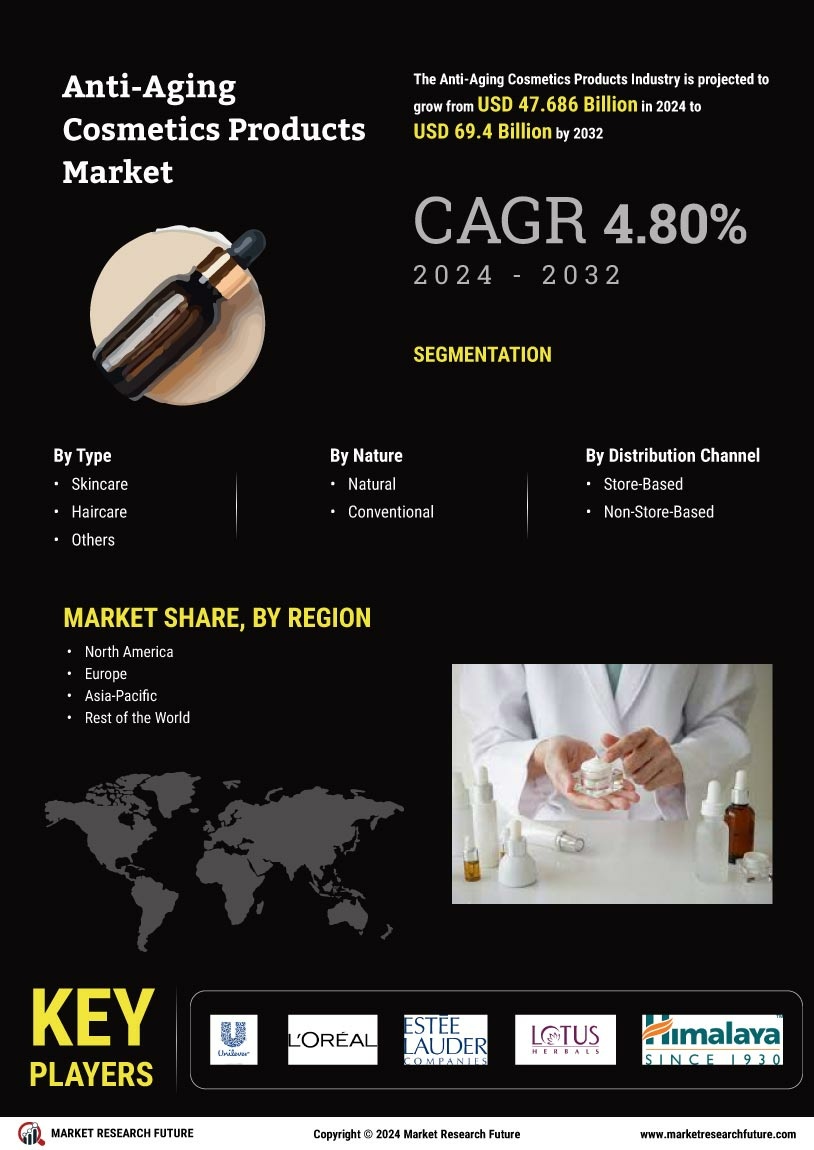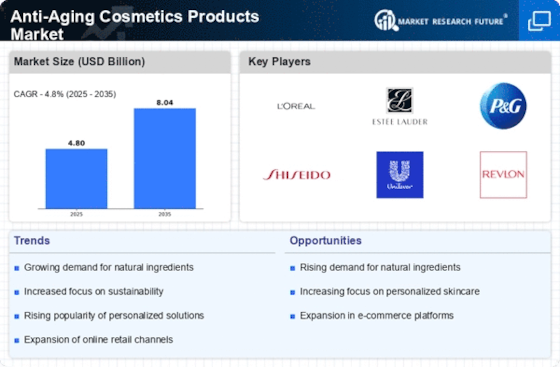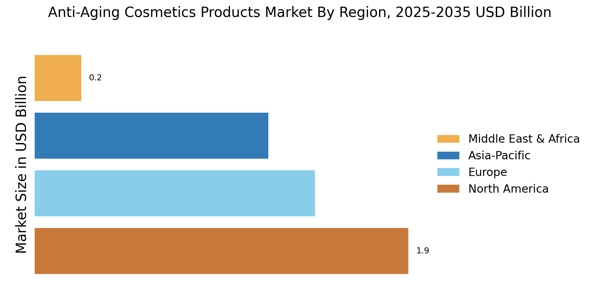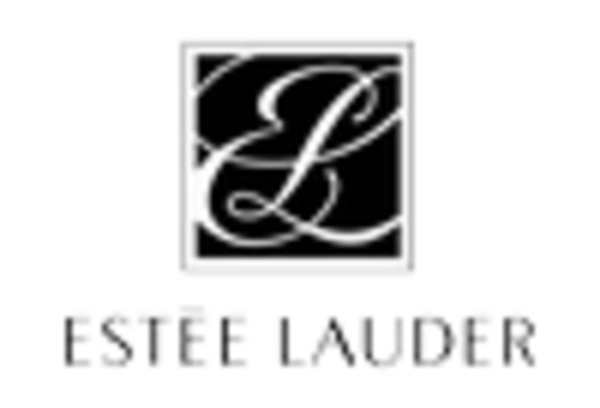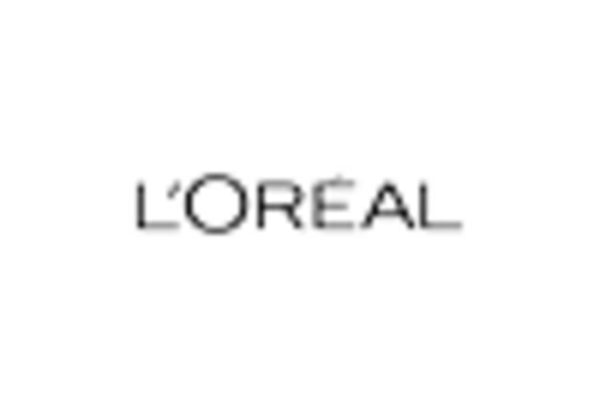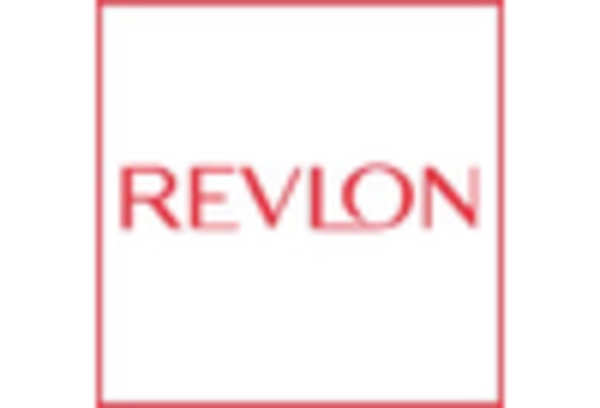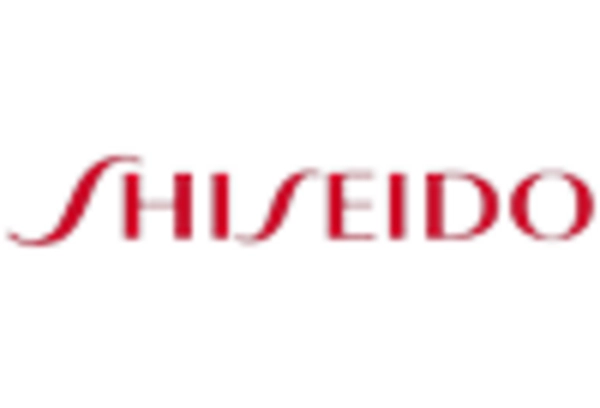Leading market players are extensively investing in research & development to extend their product lines, which will help the Anti-Aging cosmetics products market grow even more. Market participants are also engageing in a number of strategic initiatives to grow their worldwide footprint, with significant market developments including new product launches, contractual agreements, mergers and acquisitions, increased investments, and collaboration with other organisations. To expand and thrive in a more competitive and rising market climate, the Anti-Aging cosmetics product industry must offer cost-effective items.
Manufacturing locally to minimize operational costs is one of the key business tactics used by manufacturers in the Anti-Aging cosmetics products industry to benefit clients and increase the market sector. In recent years, the Anti-Aging cosmetics products industry has offered some of the most significant advantages to medicine. Major players in the Anti-Aging cosmetics products market, including The Estee Lauder Companies Inc, Lotus Herbals Pvt. Ltd, The Himalaya Drug Company, The Procter & Gamble Company, Kaya Limited and others, are attempting to increase market demand by investing in R&D operations.
L'Oréal S.A. is a French cosmetics and personal care corporation based in Clichy, Hauts-de-Seine, with a registered office in Paris. It is the world's largest cosmetics company, and it has expanded its operations in the industry, focusing on hair colour, skin care, sun protection, make-up, perfume, and hair care. Eugène Paul Louis Schueller (1881-1957), a young French chemist, invented Oréale hair colour in the early twentieth century. Schueller developed and manufactured his own goods, which he subsequently sold to Parisian stylists.
Schueller registered his company, the Société Française de Teintures Inoffensives pour Cheveux (Safe Hair Dye Company of France), on July 31, 1919.
In December L'Oréal announced the acquisition of the vegan skincare company Youth to the People.
Unilever is a multinational British consumer goods corporation headquartered in London, England. Food, condiments, bottled water, baby food, soft drink, ice cream, instant coffee, cleaning agents, energy drink, toothpaste, pet food, pharmaceutical and consumer healthcare products, tea, breakfast cereals, beauty products, and personal care are all products manufactured by Unilever. Unilever is the world's largest soap manufacturer, with products sold in over 190 countries. Lifebuoy, Dove, Sunsilk, Knorr, Lux, Sunlight, Rexona/Degree, Axe/Lynx, Ben & Jerry's, Omo/Persil, Heartbrand (Wall's) ice creams, Hellmann's, and Magnum are among Unilever's most well-known brands.
Unilever is divided into three segments: Foods & Refreshments, Home Care, and Beauty & Personal Care. It has R&D facilities in China, India, the Netherlands, the United Kingdom, and the United States..
In October Unilever reported that 99 percent of its UK shareholders approved of the merger, i.e., voted to base the firm in London.
